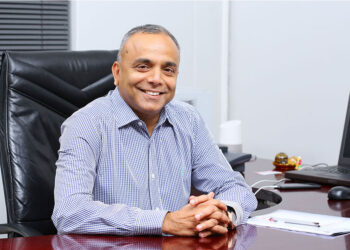- Tsaone Segaetsho
The latest report by ecotourism giant, Chobe Holdings, shows a decrease in carbon emissions by 226 tonnes this year. The Chobe Group, in the 2024 financial year, implemented an environmental strategy which has seen the ecotourism group prioritising solar power conversions, resulting in this reduction in carbon emissions.
According to the group’s integrated report of 2024, the reduction in fossil fuel use associated with running generators resulted in decreased carbon emissions per guest bednight. The report states that Chobe lodges minimised guest bednight carbon emissions by 20% from 0.030 to 0.024 tonnes CO2e during the 2023 and 2024 reporting periods.
Chobe Holdings adheres to the GHG Protocol Corporate Standard, with emissions data calculated in line with Scope 1: Direct GHG emissions from sources. The 2024 integrated report notes that premium camps situated in Moremi consumed a significant amount of diesel. These camps – Camp Moremi, Camp Xakaxana, and Okuti – accounted for 41 percent of generator consumption.
However, last year Chobe Holdings converted these camps to renewable energy, installing state-of-the-art off-grid photovoltaic solar arrays at a cost of P11.5 million. “The installation of solar technologies at Okuti, Camp Moremi, and Camp Xakaxana has resulted in a significant reduction in truck movement and the associated carbon emissions from operating diesel generators, with Chobe reducing generator diesel consumption at these lodges by 125,139 litres by February 2024,” said Chobe Holdings in its 2024 Integrated Report.
The report states that a total of 313 solar panels, producing up to 100kW of power, are installed to supply approximately 20% of Chobe Game Lodge’s daily power requirements, with the remainder supplied through hydroelectric power. Chobe Holdings is working to convert all nine lodges to solar technologies, having invested P31 million since 2014 towards the reduction of fossil fuel use. The current report indicates this started with the installation of solar panels at Chobe Game Lodge.
“Chobe has invested significantly in highly efficient hot water heating systems, including Stiebel and Sunray hot water systems. There are about 150 solar geysers, producing up to 25,000 litres of hot water for both guests and staff in the lodges. Not only do these systems use renewable energy sources, but they are also insulated to achieve excellent energy efficiencies, which accounts for a 70% reduction in power consumption,” said Chobe Holdings in its latest report.
Chobe has been pioneering advanced technology for electric-powered boats and vehicles, showcasing the company’s commitment to decarbonising its operations, according to the 2024 Integrated Report.
In Chobe’s ecotourism operations of 2024, the group used 15 percent petrol, 10 percent LPG gas, 35 percent generator diesel, and 45 percent vehicle diesel.










